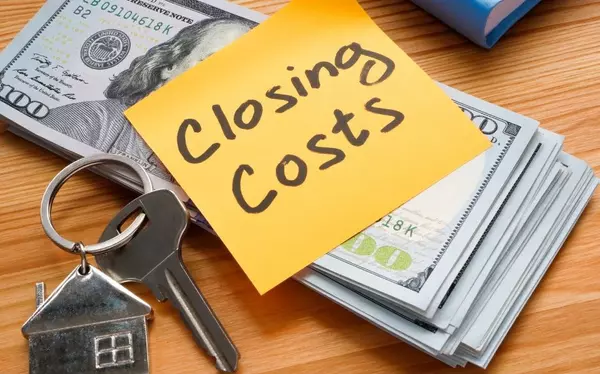How do I know if I can buy a house?

How do I know if I can buy a house?
I. Introduction
Buying a house is an exciting milestone in life, marking a significant step towards stability and investment in the future. It's not a choice to be made hastily, though. Before diving into the world of homeownership, it's crucial to assess your readiness to ensure a smooth and successful transition. Here's how to determine if you're truly prepared to purchase a house.
Key Takeaways:
- Thorough Financial Assessment: Before diving into homeownership, conduct a comprehensive financial assessment. This includes evaluating your credit score, debt-to-income ratio, and savings for down payment and closing costs. Consider additional expenses like property taxes and insurance to ensure you're financially prepared.
- Stability Check: Assess your stability in various aspects of life, including employment, long-term plans, and current living situation. Ensure you're ready for the commitment of homeownership and that your circumstances align with purchasing a house.
- Market Research is Key: Understand local real estate market trends, determine the type of property that suits your needs and budget, and explore neighborhoods meticulously. Researching these factors will help you make informed decisions and find the perfect fit for your lifestyle.
- Mortgage Pre-Approval: Secure pre-approval for a mortgage to set a solid foundation for your home search. Pre-approval demonstrates your seriousness as a buyer, helps determine affordability, and streamlines the buying process.
- Seek Professional Guidance: Consult with real estate agents, financial advisors, and other professionals to navigate the complexities of the homebuying process effectively. Utilize available resources for first-time homebuyers and don't hesitate to ask questions to clarify any uncertainties you may have.
II. Financial Assessment: The Foundation of Homeownership
One of the fundamental aspects of determining your readiness to buy a house is conducting a thorough financial assessment. This involves evaluating various financial factors to ensure you're financially equipped to handle the responsibilities of homeownership.
Start by assessing your credit score. Your credit score plays a vital role in determining your eligibility for a mortgage and the interest rate you'll receive. A higher credit score typically translates to better loan terms, so it's essential to review your credit report and address any issues that may negatively impact your score.
Next, calculate your debt-to-income ratio (DTI). Lenders use this ratio to assess your ability to manage monthly mortgage payments in addition to your existing debts. Ideally, your DTI should be below 43% to qualify for most conventional mortgages. If your DTI is higher, you may need to pay down debt or increase your income before pursuing homeownership.
Saving for a down payment and closing costs is another critical aspect of financial readiness. While some loan programs offer low or no down payment options, having a sizable down payment can lower your monthly mortgage payments and reduce the overall cost of homeownership. Additionally, don't forget to factor in closing costs, which typically range from 2% to 5% of the home's purchase price.
Consideration of additional expenses is also essential. Owning a home entails more than just mortgage payments. You'll also be responsible for property taxes, homeowners insurance, and ongoing maintenance and repairs. Be sure to budget for these expenses to avoid financial strain after purchasing a house.
III. Stability Check: Assessing Your Circumstances
Beyond financial readiness, it's crucial to assess your stability in various aspects of life before buying a house.
Start by evaluating your employment stability. Lenders prefer borrowers with a steady income history, so if you've recently changed jobs or anticipate changes in your employment status, it may be wise to wait until your situation stabilizes.
Consider your long-term plans for staying in the area. Buying a house is a significant commitment, and you'll want to ensure you'll be living in the same area for the foreseeable future to justify the investment.
Evaluate your current living situation and whether it meets your needs. If you're content with your current housing situation and not feeling pressured to buy, it may be wise to wait until you're fully prepared to take on the responsibilities of homeownership.
IV. Market Research: Finding Your Perfect Fit
Before diving into the realm of homeownership, it's essential to conduct thorough market research to make informed decisions.
Understanding the local real estate market trends is paramount. Stay updated on factors like property values, market inventory, and appreciation rates in your desired area. This insight will help you gauge whether it's a buyer's or seller's market, allowing you to adjust your approach accordingly.
Determine the type of property that aligns with your needs and budget. Are you looking for a single-family home, condominium, townhouse, or perhaps an investment property? Consider factors such as size, layout, amenities, and potential for future resale value. Ensure your choice fits within your financial parameters without overstretching your budget.
Explore neighborhoods meticulously, considering factors like schools, amenities, safety, and commute. Research crime rates, school ratings, proximity to essential services, and recreational facilities. Take time to visit potential neighborhoods during different times of the day to get a feel for the community and ensure it aligns with your lifestyle preferences.
Mortgage Pre-Approval: Setting the Foundation
Securing mortgage pre-approval is a crucial step in the homebuying process, offering numerous benefits and setting a solid foundation for your search.
Understand the importance of getting pre-approved for a mortgage. Pre-approval demonstrates to sellers that you're a serious and qualified buyer, potentially giving you a competitive edge in a competitive market. It also provides clarity on your purchasing power, allowing you to focus your search on properties within your budget.
Pre-approval helps in determining affordability and setting a realistic budget. By obtaining pre-approval, you'll receive a clear picture of the loan amount you qualify for, along with associated interest rates and monthly payments. This insight enables you to set realistic expectations and narrow down your search to homes you can comfortably afford.
Familiarize yourself with the steps involved in obtaining pre-approval. Typically, this process entails completing a mortgage application, providing documentation of your income, assets, and debts, and undergoing a credit check. Consult with a mortgage lender to initiate the pre-approval process and gather necessary documentation promptly to expedite the approval timeline.
VI. Emotional Readiness: Are You Prepared?
Beyond the financial and logistical aspects, it's crucial to assess your emotional readiness for homeownership.
Consider the commitment involved in homeownership. Owning a home comes with long-term responsibilities, including mortgage payments, maintenance tasks, and unexpected repairs. Reflect on whether you're prepared to commit to these obligations and embrace the lifestyle changes that come with homeownership.
Evaluate your comfort level with the responsibilities of owning a house. Are you equipped to handle the challenges and uncertainties that may arise? Assess your willingness to take on tasks such as yard maintenance, appliance repairs, and renovations. While homeownership offers numerous rewards, it also requires dedication and resilience to navigate potential hurdles.
Understand the potential stressors and rewards of homeownership. While owning a home can bring a sense of pride, stability, and financial security, it's essential to acknowledge the potential stressors, such as unexpected expenses, market fluctuations, and maintenance demands. Take time to weigh the pros and cons and ensure you're emotionally prepared for the journey ahead.
VII. Risk Assessment: Mitigating Potential Pitfalls
As with any significant investment, homeownership entails inherent risks that must be carefully considered and mitigated.Understand the risks associated with homeownership, such as market fluctuations and unexpected expenses. Real estate markets can be volatile, with property values subject to fluctuations influenced by various factors like economic conditions and housing supply. Additionally, unforeseen expenses such as repairs, renovations, and property taxes can impact your financial stability.
Identify strategies to mitigate risks and protect your investment. Establish an emergency fund to cover unexpected expenses and ensure you're financially prepared for unforeseen circumstances. Prioritize thorough inspections and due diligence when purchasing a property to uncover any potential issues before finalizing the transaction. Consult with a real estate professional to navigate potential risks effectively and safeguard your investment.
Consider alternative options if buying a house may not be the best decision at the moment. If your financial or personal circumstances are uncertain, it's essential to explore alternative housing options, such as renting or downsizing. Evaluate your long-term goals and priorities to determine the most suitable housing solution for your current situation.
VIII. Seeking Professional Guidance: Harnessing Expertise for Success
Recognizing the importance of consulting with real estate agents, financial advisors, and other professionals is crucial. These professionals possess specialized knowledge and experience in their respective fields, providing invaluable insights and guidance throughout the homebuying process. From understanding market trends to navigating financial complexities, their expertise can empower you to make informed decisions and achieve your homeownership goals.
Utilizing resources and tools available for first-time homebuyers can enhance your journey. Many organizations and government agencies offer educational resources, workshops, and online tools designed to support first-time homebuyers. These resources provide valuable information on topics such as budgeting, mortgage options, and homebuying strategies, equipping you with the knowledge and confidence to navigate the process effectively.
Asking questions and seeking clarification on any uncertainties is essential. Don't hesitate to reach out to professionals for guidance and advice, especially if you encounter unfamiliar terms or concepts during the homebuying process. Whether you have questions about mortgage options, contract terms, or property inspections, seeking clarification can help alleviate concerns and ensure you make well-informed decisions every step of the way.
IX. Conclusion: Navigating Your Homebuying Journey with Confidence
In summary, embarking on the journey towards homeownership is a significant milestone that requires careful consideration and planning. Before diving into the real estate market, it's essential to assess your readiness and leverage professional guidance to navigate the process effectively.
By consulting with real estate agents, financial advisors, and other professionals, you can tap into their expertise and gain valuable insights to make informed decisions. Additionally, utilizing resources and tools available for first-time homebuyers can empower you with the knowledge and confidence to navigate the complexities of the market.
As you navigate the homebuying process, don't hesitate to ask questions and seek clarification on any uncertainties you may encounter. Remember that buying a house is a significant investment, and approaching it with careful consideration and guidance can help you achieve your homeownership goals with confidence.
In closing, I encourage you to thoroughly assess your readiness, leverage professional guidance, and embark on your homebuying journey with confidence. With the right support and preparation, you can turn your dream of homeownership into a reality and create a place to call home for years to come.
Categories
Recent Posts










